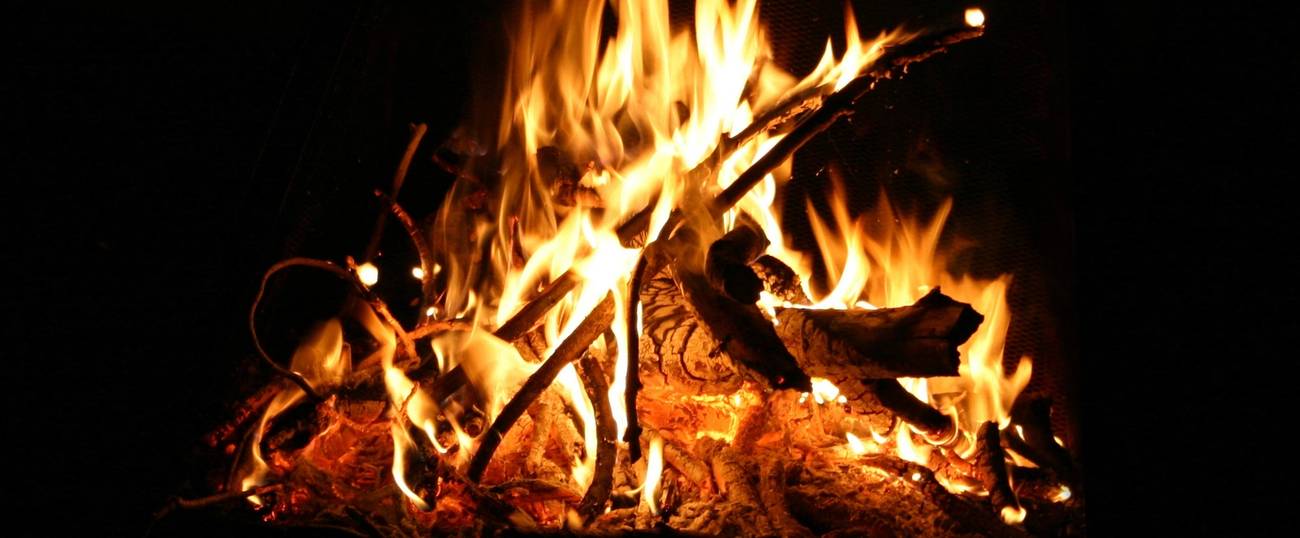My Own Private Tisha B’Av: The Summer Camp
To a young boy grappling with his sexuality, a fire portends the struggles to come




Thirty-three years ago this week, there was a moment when almost all the counselors disappeared at once, leaving just two with acoustic guitars leading dozens of campers in random songs in an effort to distract us. But as we sang “Me and Julio Down by the Schoolyard” by the campfire in the woods, the first Saturday night medurah of the session, we could see what was happening through the trees in the distance: Our camp was on fire—specifically my tzrif, my cabin, which I’d planned to live in for another three weeks with some two dozen other teenage boys.
This, my fourth summer at Habonim Dror Camp Moshava—a Labor Zionist camp modeled on a kibbutz that was located, at the time, in Capon Bridge, West Virginia—was not going as planned.
The fire was only the most obvious sign. I lost everything a 13-year old owned in 1984: my boom box, my Psychedelic Furs T-shirt, my retainer. (“Why wasn’t it in your mouth?” my mother would ask pointedly, as we filled out insurance forms.) I spent the last three weeks of the camp session wearing ill-fitting hand-me-downs and using a comb and toothbrush the collective kupah committee agreed to buy each camper. (To each according to his need, yadda yadda yadda.)
But there were other signs, too, that 1984 was not a lucky year. This place, where I’d finally found a place where I fit in as a nerdy but sociable, sports-loathing, Israeli-dance-loving, progressive atheist Jewish kid, was suddenly becoming alien to me as an adolescent realizing I was gay. While my erstwhile cabin-mates talked about the girls across the hill, I was noticing the other boys—and the male counselors—and too petrified to say anything about it.
I had hoped camp would remain my safe haven, as my life at home grew more precarious: I was heading to high school in the fall, and already that summer one of my closest friends had iced me. (We never talked about it, but it was evident even at the time that we both knew I was gay, and he didn’t want to be connected to me any longer.) My sister, who’d been my closest ally since we’d attended Moshava together in 1981, was leaving for college. I tried to control whatever I could; a crash diet (1,000 calories a day—a ridiculous plan I found in one of my sister’s teen girl magazines) got me down to 118 pounds, skeletal at five-foot-nine. But I still couldn’t truly control myself. While the other guys were grabbing the girls down by the lake, I was busy making friendship bracelets for the boys; we called them virginity bracelets, the legend being that they’d stay on until you lost your virginity. (Mine stayed on for years.) And when Revolution came (it was a socialist camp, remember), and we kicked out the counselors for a few days and raided their cubby holes, the other boys grabbed funky hats, cool T-shirts, and awesome sunglasses from our counselors; I pinched a white denim skirt and Bass sandals from the female lifeguard.
By the time our annual Tisha B’Av commemoration came a week or two after the fire, it was clear to me that my time at camp was over. The next summer, I got a job instead.
Wayne Hoffman is executive editor of Tablet Magazine.